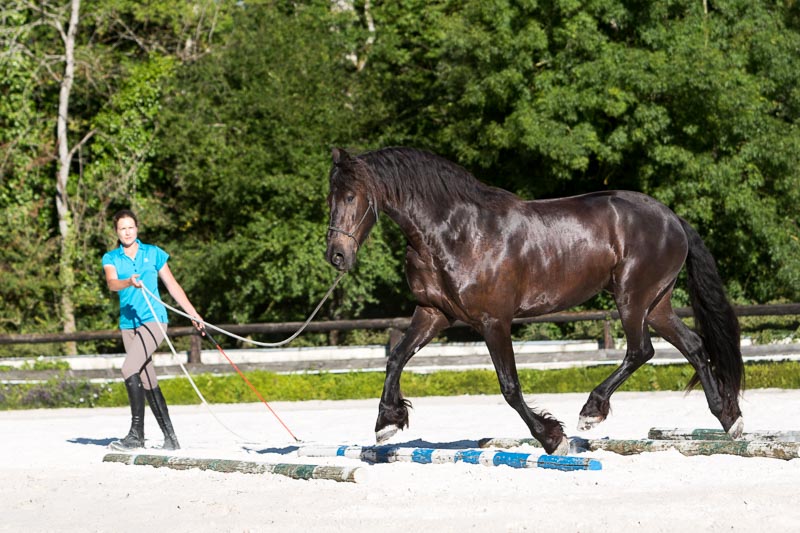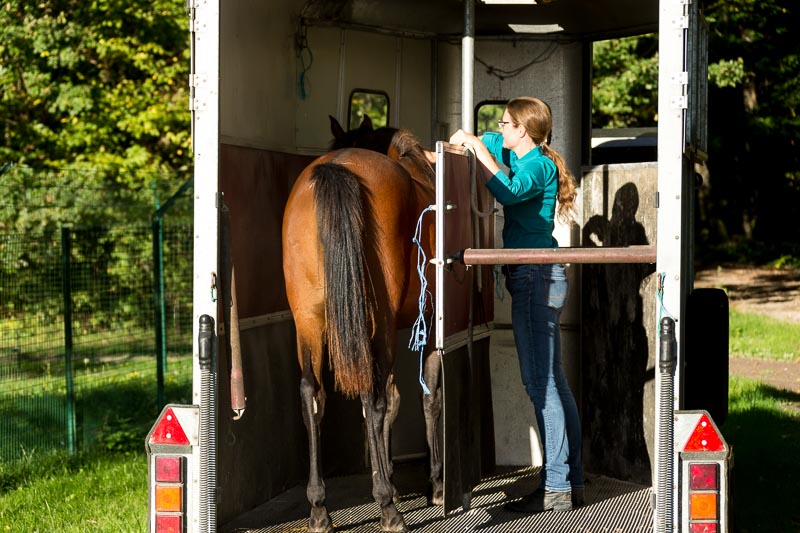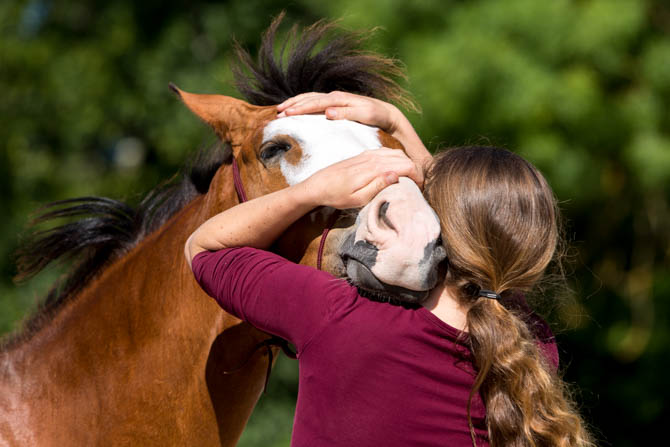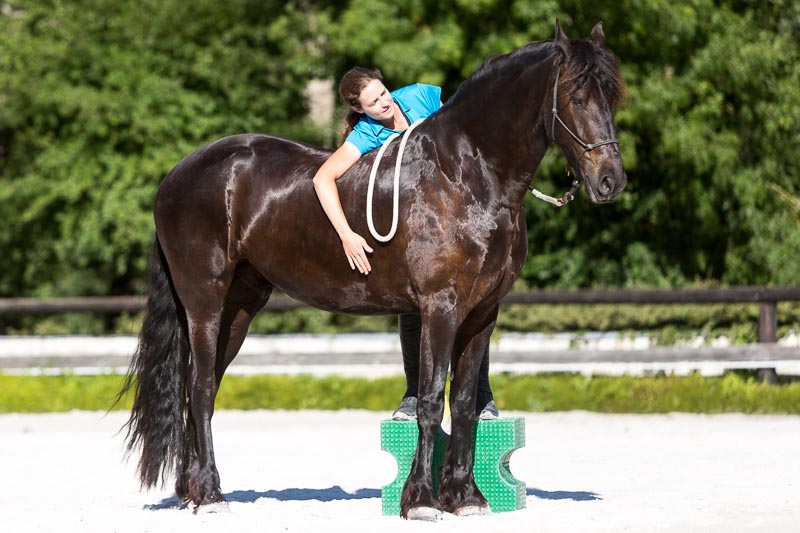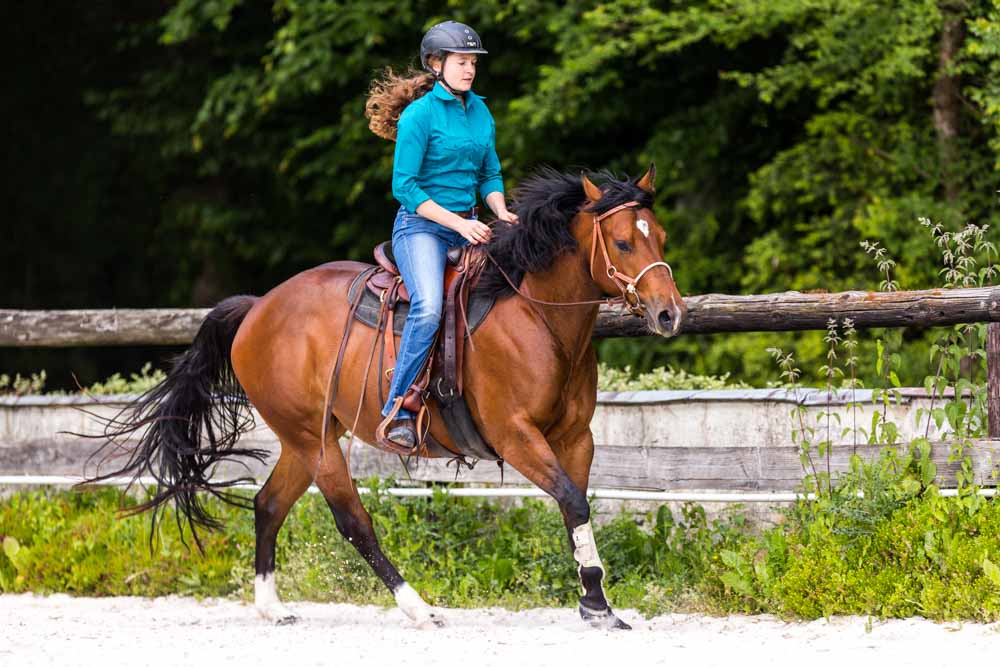The Ultimate Checklist BEFORE You Start Your Horse
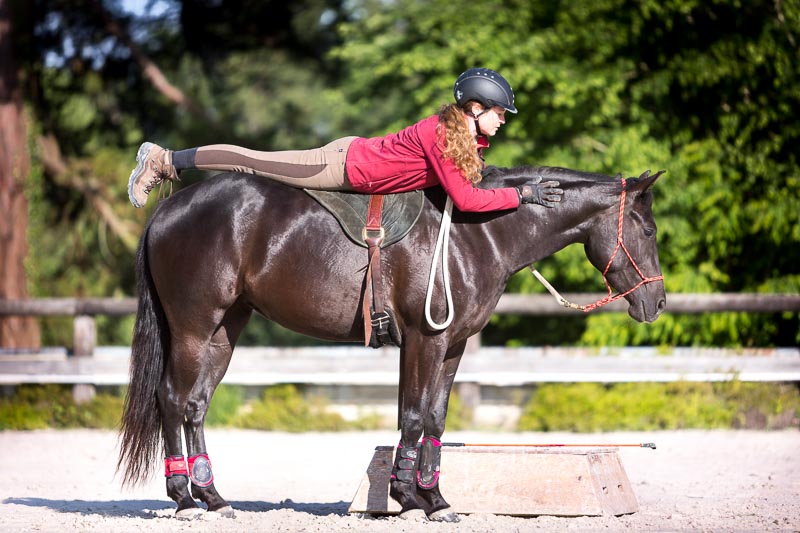
The time when your horse gets started under saddle is an important moment in your horse's life.
It is exciting and accompanied by the happy anticipation to ride your youngster for the first time.
You do everything you can to make this experience a good and positive one for your horse.
There are so many things to consider, so many decisions to be made for the best of your horse.
I made you a complete Checklist about every important point you want to think about before you start your horse or bring your horse to a professional who starts your horse for you.
So that you can make every single decision with full awareness and have your horse perfectly prepared for this so important step in his life.
Decision #1: Can I do it by myself or should I better delegate to a professional I trust?
The very first decision you have to make is if you are going to start your horse yourself or if you entrust your horse to a professional to do the job for you.
Be honest with yourself about this point.
You want to really make sure that you have the necessary resources available to you if you want to do the job yourself.
Take these points into consideration:
Time
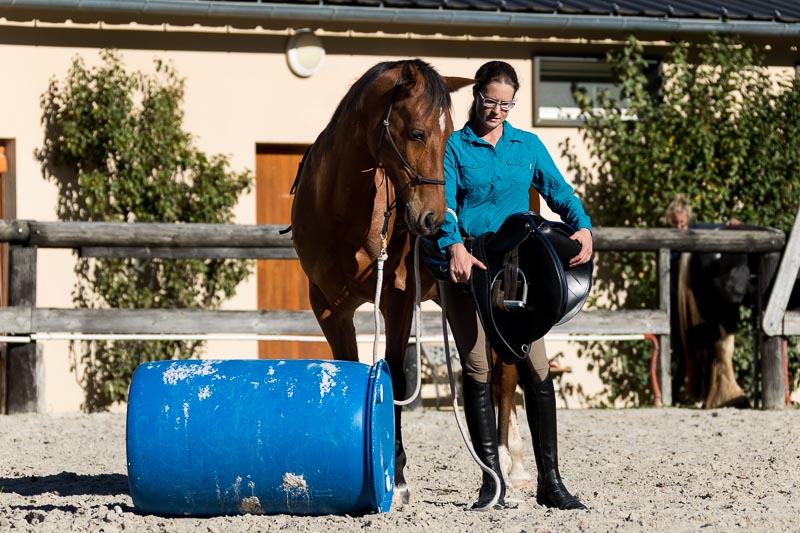
Do you have enough time in your schedule?
When starting a horse, it is ideal to be able to work with the horse minimum 3-4 sessions per week.
It doesn’t have to be intense workouts, but regular and structured sessions for optimum progress.
This gives the young horse the necessary routine to settle quickly into the new job.
Support
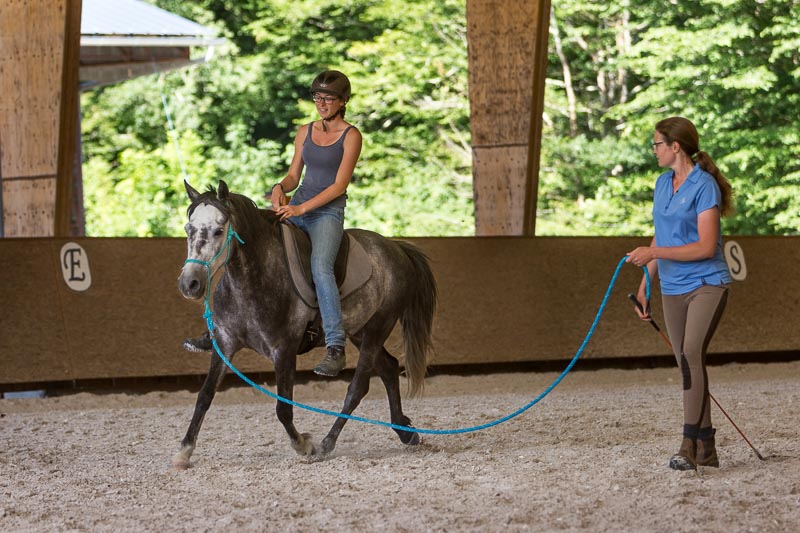
Safety first! An experienced person should always be there to support if necessary from the ground - especially during the critical first few rides.
Even if you are a very experienced rider, you should never be completely alone when starting a horse.
Accidents can happen very fast with young horses.
At the very least you should inform a person that will be around about what you are doing to help in case of emergency.
Facility
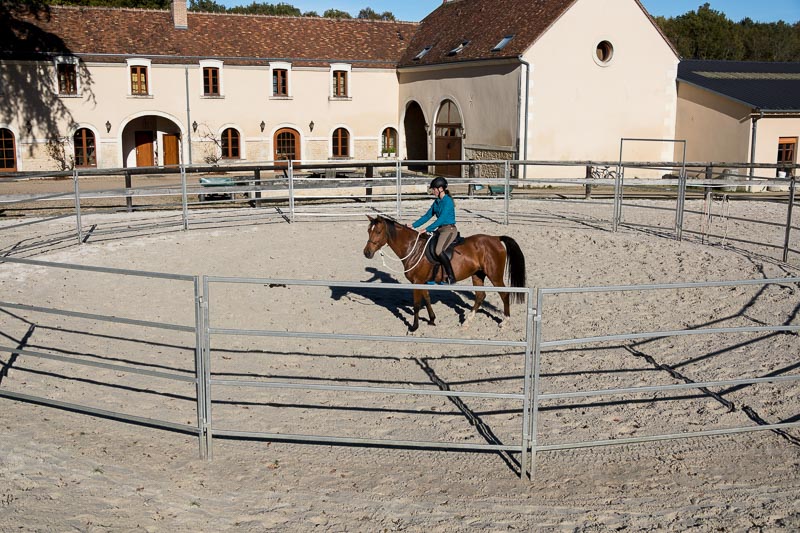
Do you have some sort of Arena or Round Pen? Good, not too hard or slippery footing is very important.
Of course, it is possible to work a horse in the pasture, but it really makes the task a lot more difficult.
You want to be able to work your horse in an enclosed area, with the least number of distractions and good footing to be sure that your horse can concentrate on what you are teaching him and to be sure that he is safe also if he suddenly thinks he needs to buck and run.
Knowledge/Experience
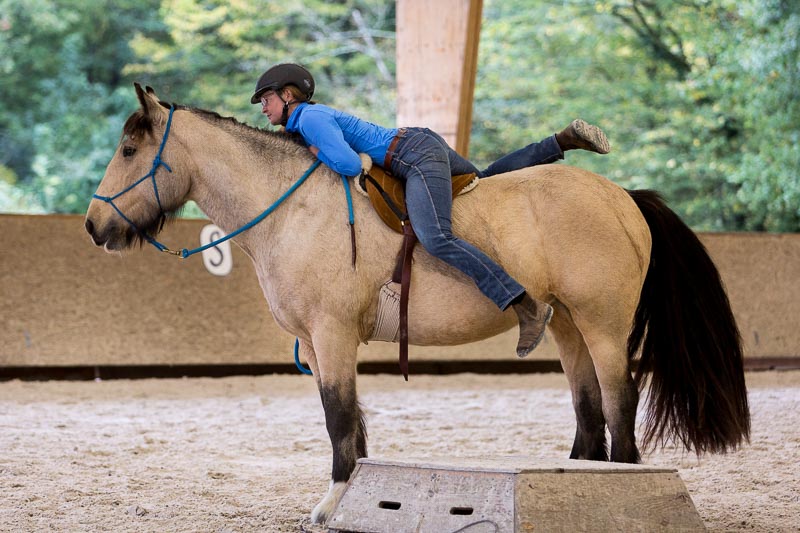
Hand on the Heart: Do you have the necessary knowledge to start a horse?
Do you have the necessary level of experience when it comes to riding young horses?
It’s a completely different story to ride an already well-educated horse than it is to ride a youngster.
You need a whole different set of skills when riding a young horse for his first few rides to do it in a way that it is a good experience for the horse.
Unfortunately, we don’t know what we don’t know - and this is reason #1 for so many mishaps during the first few rides.
Confidence as a Rider
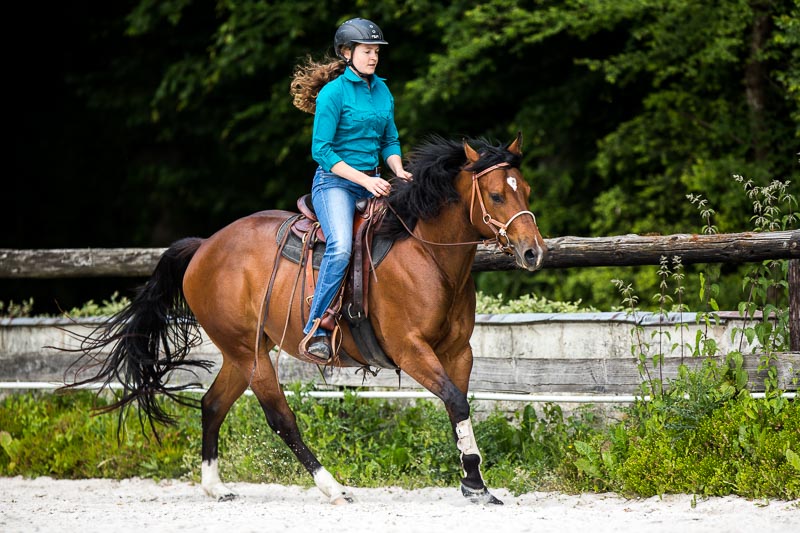
What is your level of confidence when riding?
Not just the horse you usually ride, but how is your confidence when riding horses you don’t know?
How is your confidence when it comes to riding young horses?
Or horses you know might buck or spook?
When riding a horse for the first time, one of the most important factors is that the rider can give confidence to the horse.
If the rider is worried, the horse will feel this and be worried in return.
This is a very, very important point, be honest about it to yourself.
Your level of confidence is an absolutely crucial factor for how your horse experiences the first rides.
If you find holes in any of these factors, you should consider bringing your horse to a professional.
For the good of your horse.
I get it, it is hard to trust another person with your youngster.
I would also not just let anyone handle my horses. You have my full compassion at this point.
This leads us to decision #2:
Decision #2: Find the right Professional
When choosing the right professional, you want to take your time to make a good decision.
Don’t trust the label, check what is inside the bag.
It is very much like the text on a bag of horse food: It promises to fix all your horses problems but if you know a bit about equine nutrition and you read the label of ingredients and additives, it often shows a completely different picture.
The first steps are all about getting aware of what YOU actually want:
What is your goal with your horse?
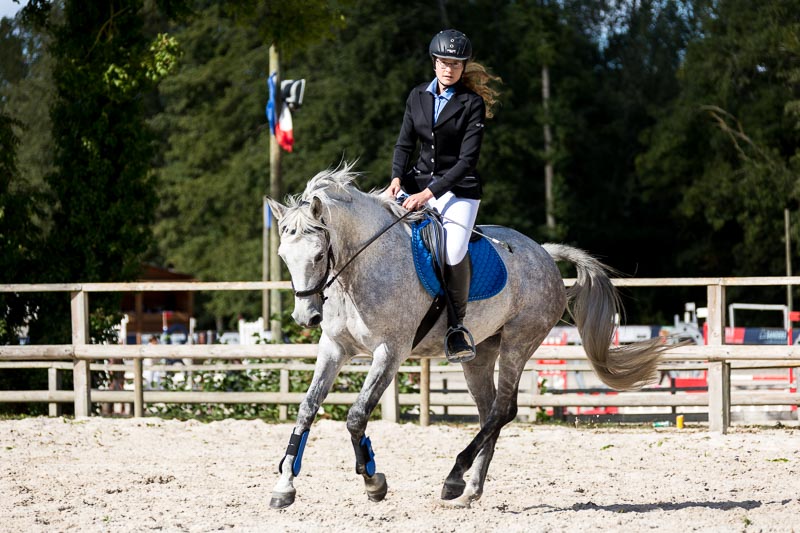
What are your plans with your horse?
What would you like to do later on?
What discipline would you like to pursue with your horse?
Western, Dressage, Jumping or is your main goal an all-round leisure horse with who you can enjoy long trail rides, play at liberty and do all kinds of activities?
Choose a professional who has experience in the discipline of your choice.
What are your values/philosophy about horses getting started?
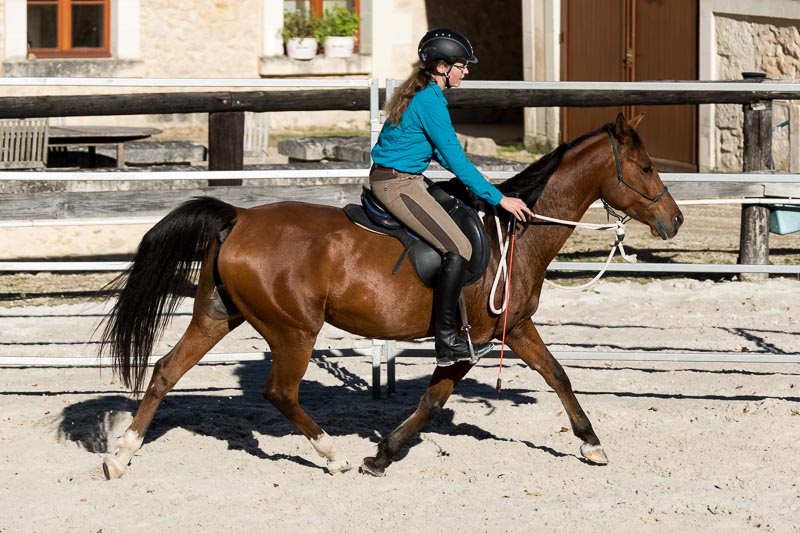
This is maybe THE most important factor when choosing a professional to start your horse.
Get crystal clear about what your values are: Get it done quickly in a just a few days so that you can soon progress to more serious training?
Or give your horse time to process and digest everything?
Would you like to have it done in the rhythm of your horse, maybe taking a bit longer, but being sure that everything was done WITH your horse?
What are your values around this?
And it’s ok to have a different point of view - you just need to find your position.
How will your horse be boarded?
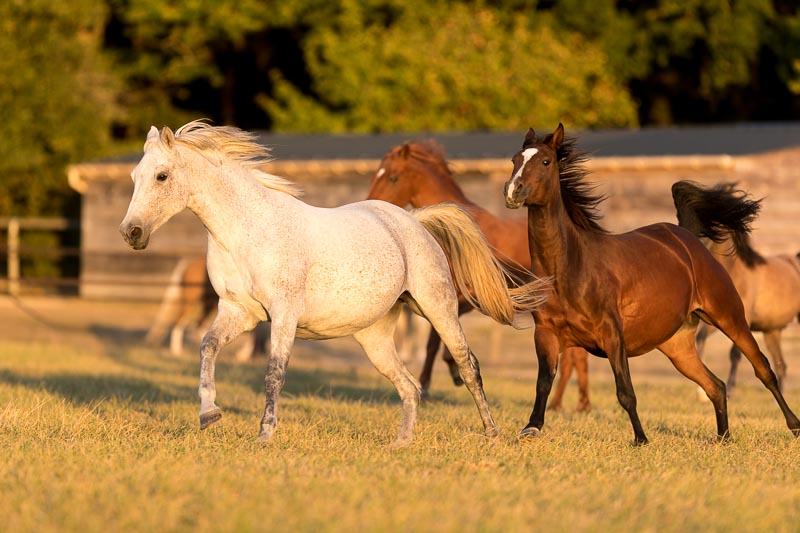
Once you got clear about the first two points, it's about weighing out options.
A very important factor during your horses stay at the professional is: How is your horse boarded?
Does he live in a box, can he go in a field every day, does he have contact to other horses?
Can he maybe even live in a herd?
The start under saddle already means a ton of new impressions, a lot of new things to digest.
You want to be really sure that your horse can live a good horse life during the time of the day he isn’t being worked with.
Box with paddock, company and at least daily turnout are a must for me for horses who come for starting at my place.
Horses who stay for longer will even join one of our herds here.
Because only a content horse will be relaxed and ready to learn.
How long will it take to start your horse?
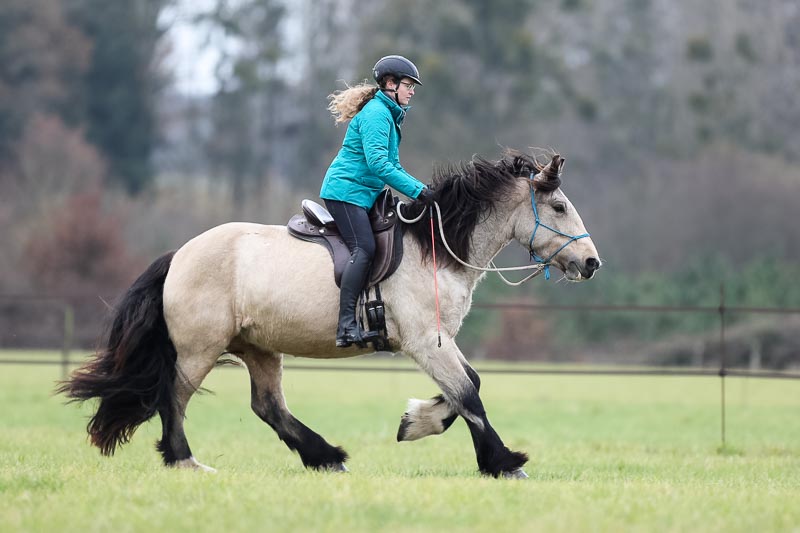
To get a horse started under saddle takes a certain amount of sessions.
How many depends on the horse.
And, of course, on your definition of what it means that the horse is started.
For some people the horse is started once it accepted the rider on the back and walked, trotted and cantered once or twice in a round pen with the rider.
This result you can have in as little as three sessions and might be absolutely sufficient if you are a professional rider.
If you have a different picture though of what it means that a horse is started, it will take longer, of course.
For me, a horse is started when I can ride it in 3 gaits confidently and calmly in the arena and on a trail ride.
I can ride on long reins, the horse responds confidently to the basic aids of gait and direction.
I can navigate over simple trail obstacles and have established trust, respect and communication with the horse.
To achieve this, I need to ride the horse for about 15 - 20 short rides.
Some rides might only be 10 minutes of duration, some rides might be about 30 minutes long.
This can be done in 1 month if the horse is worked 5-6 x per week.
In my experience though, it is better for the young horse to be worked every second day only, about 3-4 x per week.
This allows the horse to digest all the new information and it avoids the occasional muscle ache.
Taking a bit more time is absolutely beneficial when it comes to this so important moment in your horse's life.
But again, it all depends on what you want, where you want to go and your level of skill as a rider.
If you are very experienced as a rider, you might be happy if your horse is just out of the very first stage of accepting the rider.
You will be able to do the rest of the job.
Does the trainer involve you in the Process?
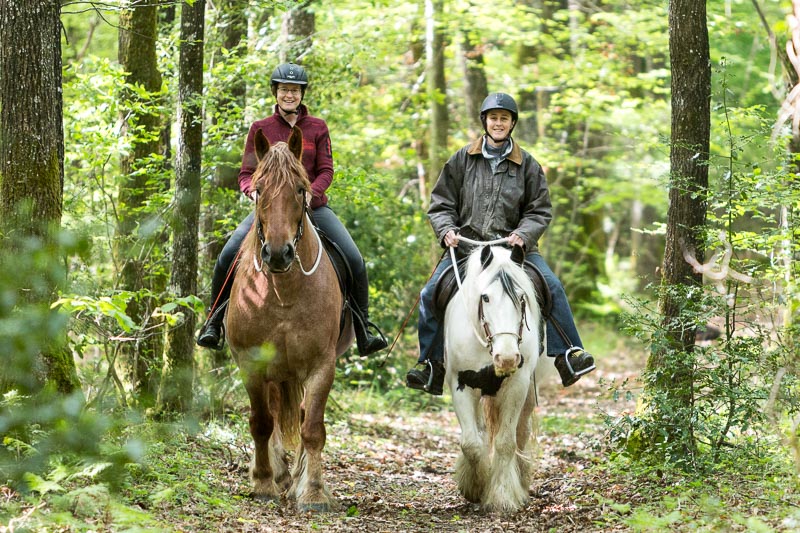
Is the trainer ok if you want to come and watch the sessions he has with your horse?
This is a very interesting point. A trainer should always be ok if the owner comes and watches. If he is not, he usually is trying to hide something.
You as the owner have the right to know what is going on, to know how your horse is trained.
I get it that some trainers are very busy and don’t want to organize their schedule around every owner that wants to come to watch. It will always take a bit more time when the owner is there and asks some questions.
But I believe that this is the right of the owner to know what if going on.
Can you come and have lessons with your horse towards the end of the stay?
It is very important that the trainer shows you how to ride your horse and gives you a plan for the next few rides. Gives you important little pointers of what to be attentive to, what not to do and how to deal with eventual quirks of your horse.
Decision #3: What is your budget?
How much money can you spend on this? Good service costs money, especially around horses.
Be realistic and don’t expect top quality for little money. If somebody promises you to get it done in just a week and charges a low price, you can’t expect a high-quality result.
You can’t expect high-quality service such as nice boarding for your horse, taking the time it takes and spending lots of time to answer all your questions if the price is set very low.
If your budget is small, you need to either make some compromises in the quality of service or in your expectations towards the outcome and how your horse is boarded and taken care for.
And if you want to have very good quality, want to be involved in the process and not rush your horse through, you will have to be ready to pay more to the professional.
I don’t take more than 3 horses (preferably 2) at once in training, for the only reason that I can be sure to be able to give every horse the necessary time he/she needs and to have enough time also for the owner who wants to come and watch.
Checklist what to take care for prior the start under saddle
You have found a professional you trust or you came to the decision to do this step yourself, now here is a checklist of everything that you want to have in order before you get started:
Basic skills
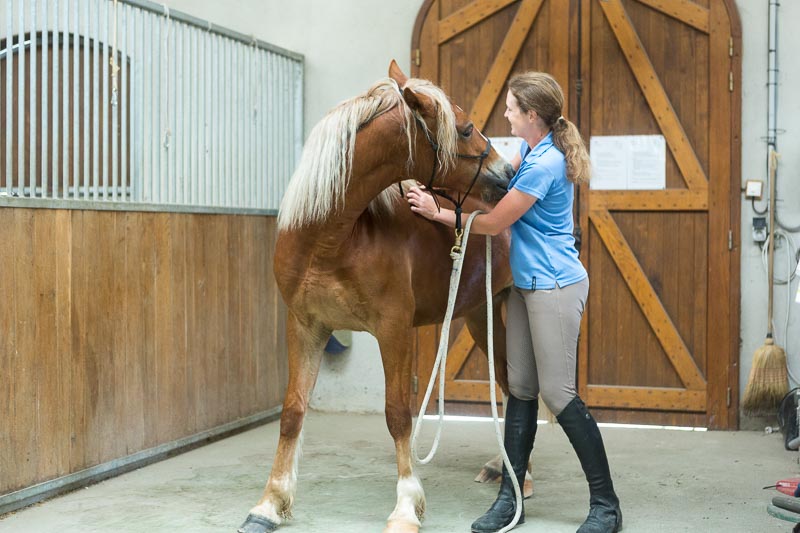
Make sure that your horse knows the normal basic skills such as leading, tying, giving hoofs....
If you have any major problem there, indicate this to the trainer.
It is important for him/her to know about eventual surprises like for example that your horse pulls back when tied, kicks when handling the hind feet or is aggressive when feeding.
This is all very important information for the professional and there is no shame to admitting this.
There is a risk for everyone involved when you don’t tell things like this.
Osteopath, 2 -4 weeks prior
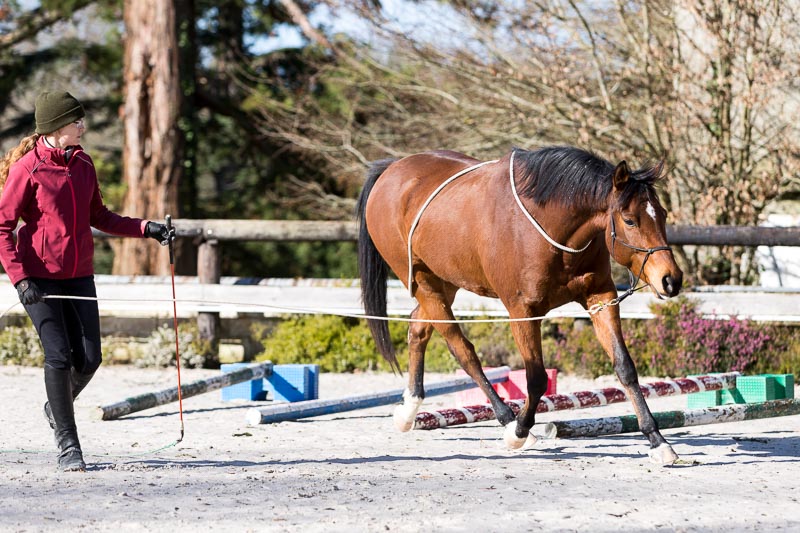
Have your horse checked by and Osteopath about 2-4 weeks prior.
A blockage somewhere in the body can be a reason for discomfort and cause your horse to show more resistant behaviour.
I have seen horses buck or not want to go forward just because of a little blockage in the back. Make sure your horse’s body is fine and isn’t the reason for a delay in training or unnecessary difficulties.
Dentist, latest 2 weeks prior
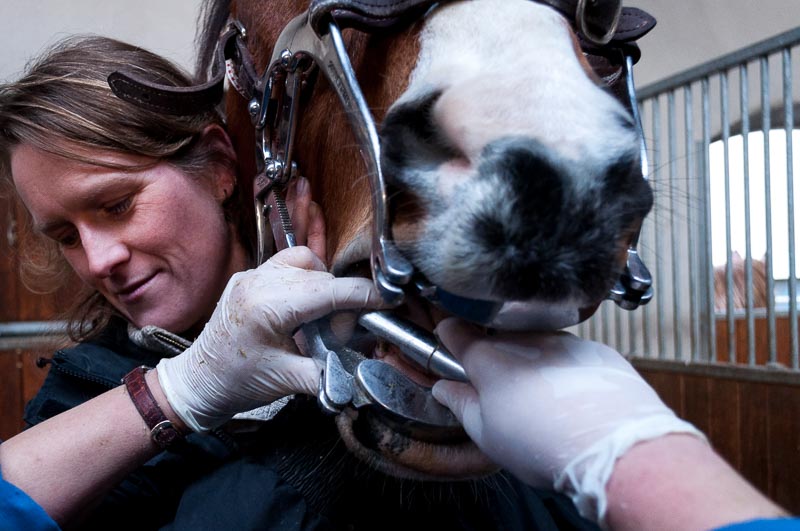
Show your horse to the dentist, if you haven’t already, latest 2 weeks prior to his start under saddle.
Especially if you want to ride your horse with a bit, this is a crucial step.
Many young horses have wolfs teeth which cause pain and discomfort when wearing a bit. You absolutely want to avoid this during those first few rides.
During those first rides, your horse will form a good or a bad association towards everything regarding being ridden. If it hurts, the association will be bad.
Vaccination, latest 4 weeks prior
Make sure your horse has all the necessary vaccination the barn asks for where your horse will stay.
Vaccinations can cause a horse to be a bit down for a week or two, so you want to get the done latest 4 weeks prior.
For Example, here at my place, we only accept horses who are vaccinated against Influenza, Tetanus and Equine Herpes I+IV.
During the last years, there have been epidemic outbreaks of Herpes and Influenza. Especially stables with high traffic are a risk factor.
Vaccinating your horse prior to entering a new barn is a question of being responsible and respectful towards the other horse owners.
Saddle Check
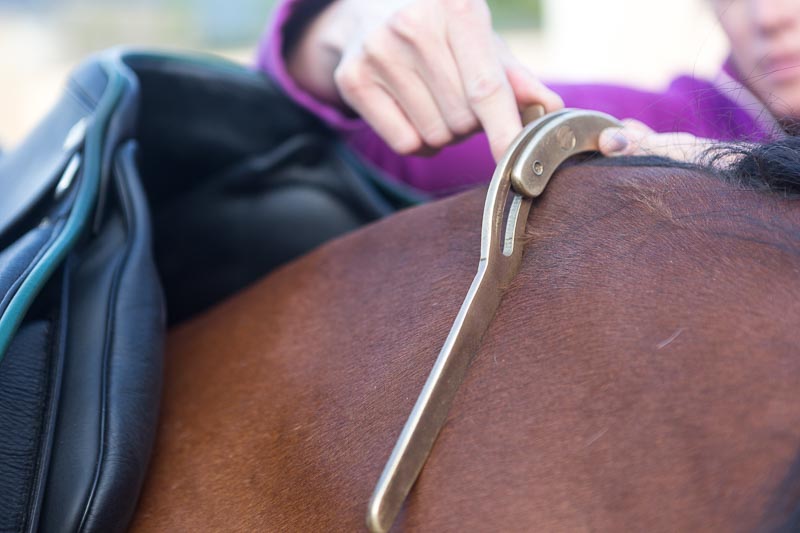
Finding a saddle for a young and developing horse is difficult. You need to think about this topic well in advance.
Professionals usually have quite a big collection of saddles and one of them will maybe fit your horse good enough for the first rides.
But what will you do once your horse is home?
Think of it in advance, inform yourself, get a professional saddle fitter out to see your horse and to give you sound advice.
No question you want to avoid having to buy another saddle in a year. But to ride a young horse with an ill-fitting saddle, doesn’t do any good.
In my experience saddles with changeable gullets work quite well as you can adjust as your horse changes shape.
Have a saddle and a cinch plus a pad before you start your horse - most professional trainers will be more than happy to help you find the right fit for you and your horse.
Top six signs your saddle may be hurting your horse
Hoof Care
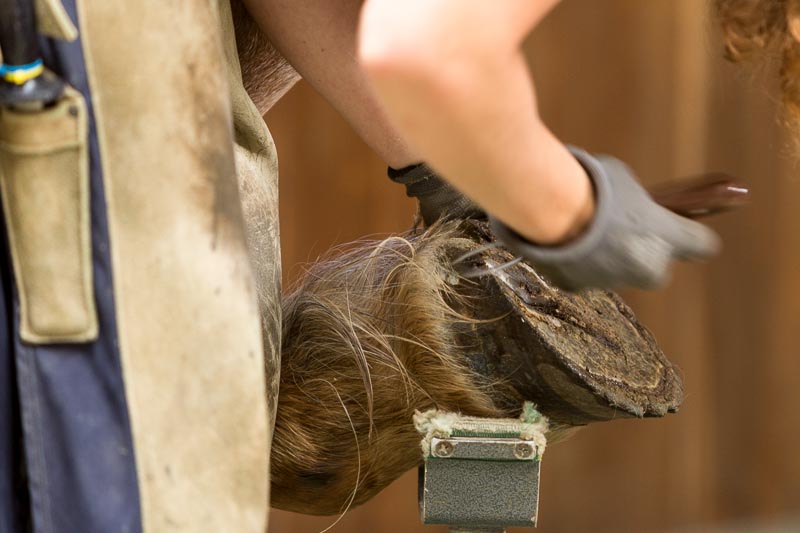
Make sure your horse's hoofs are well-taken care for and sound before you start any training. If the feet are sore, your horse can’t work and it will make the whole process a lot more difficult.
Take care for this in time with regular monthly trims from a certified professional.
If your horse needs protection because he is sensitive, take care for this, make your horse comfortable with hoof boots, glue-on shoes or regular shoes.
Don’t let your horse go through this important step with sore feet and don’t push this problem on the professional who starts your horse.
Taking care for the monthly hoof care is one thing, taking care of problem feet is another.
Dewormer latest 2 weeks before
Your horse will change barn and maybe share pasture with other horses. Everybody is concerned to keep parasite load low within their herd of horses.
Make sure your horse is up to date in his worming protocol. If necessary, give him a wormer latest 1 week before he goes to the trainer.
Be responsible, think about the others.
If your choice is to deworm naturally, please bring proof in form of a recently performed egg count that your horse is clean.
Body Condition
Make sure that your horse has a correct body condition score. Your horse shouldn’t be skinny, because he will start to work physically.
In my experience, even if the “work” during a start under saddle isn’t intense, it means a lot to the young horse's body. Most youngsters aren’t done growing, the body is muscling up in a different way due to the new way of moving.
This takes a lot of energy, so make sure your horse is in good condition. Not fat, but you don’t want the ribs showing.
If your horse is severely out of shape, lacks muscle and stamina or coordination, you want to prepare your horse physically during 2-3 months prior to his start under saddle with light, targeted work.
This allows a smooth transition into his life as a riding horse.
Trailer loading
Make sure your horse will load before the big day. You don’t want to push this until the day you should bring your horse to the trainer - and then maybe find out that your horse doesn’t want to load.
For some horses, this is a big deal and I understand that it might be too difficult for you to deal with this. Get help, maybe the professional who is going to start your horse is willing to come and help you for a few sessions?
Make sure that you won’t have any bad surprises on D-Day to prevent a lot of extra stress for you and your horse.
If however, you do experience trouble, please tell your trainer upon arrival and eventually ask him to work on this too. Of course, this will mean a few extra sessions.
And Finally:
What to pack in your horse's suitcase to bring to the professional
- grooming kit
- a bit of his usual feed to make a smooth transition
- fly spray if its summer
- leg protection if you want your horse to wear some
- hoof boots if your horse needs protection and is barefoot
- saddle pad
- saddle and cinch if you already have this
- bridle (bitless of choice or normal bridle)
- halter and lead rope, rope halter and lead rope if you have
- fly mask if it’s summer
- Horse passport
- eventual supplements and medications or creams if your horse needs regular care, be ready to pay extra for extra time spent with extra care
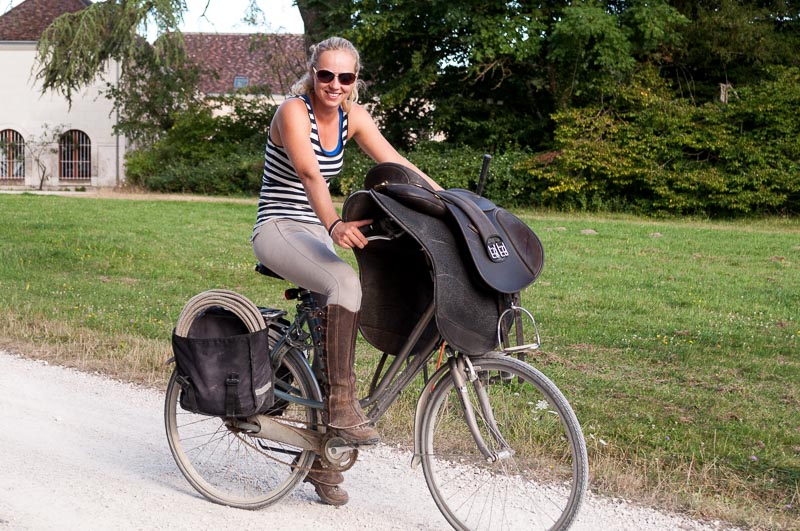
Professionals usually have a big collection of all sorts of tack which they are often more than ready to use on your youngster, but it’s always safer and better to provide your own tack you know it fits and will only be used on your horse.
I have a little collection of English and Western saddles I will readily use on any young horse.
I also have a quite big collection of all kind of different bitless headstalls and bridles - this allows me to find the best solution for the individual horse and to give good advice to the owner.
But sometimes I don’t have the required size or a saddle who fits a particular shape.
I am always ready to give advice and to answer all kind of questions before the horse joins me and I am sure that most other professionals are too.
We all want it to work out and to have fitting tack is one important key to a successful outcome.
Conclusion:
Why put anything at risk for this so important event in your horse's life?
Take your time to find the right decision and to make good choices FOR your horse.
Make sure that your horse is well prepared so that chances are as high as possible to make this an easy experience for your horse.
So that you can bring your horse to the professional of your choice with a quiet mind knowing you did the best you could to make sure your horse was as ready as he could be.
